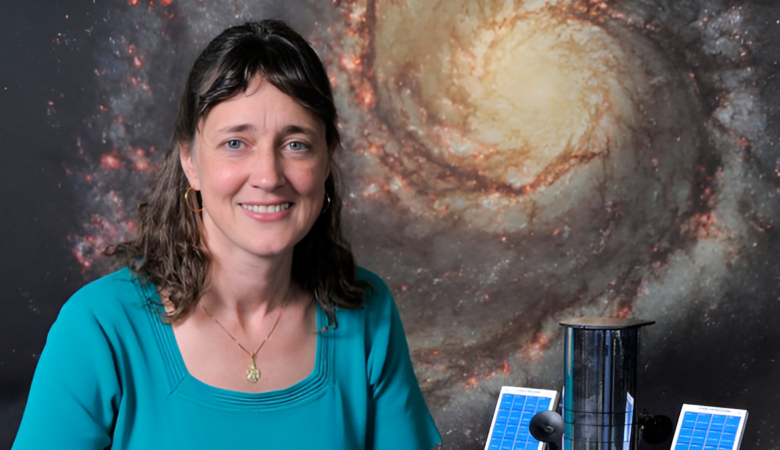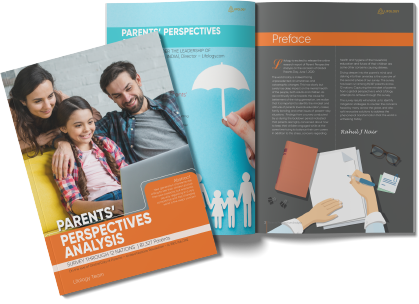Allan Gatenby, an internationally accredited career and talent development coach (CMF), Fellow of the Royal Institute of Educators (FRIEdr), Fellow of the Royal Institute of Management (FRIM), Justice of the Peace (JP), and president-elect of the Asia Pacific Career Development Association, shares his insights on career development, self-improvement, and more in an interview with Lifology.
With over 20 years of experience in this field, what do you see as the major challenge that professionals face in career guidance?
The greatest challenge professionals face in career guidance is, in my experience, understanding themselves deeply and authentically. If we can achieve this self-awareness, we are far better equipped to help others on their own career journeys.
Let me illustrate this with a personal anecdote. In 2007, I was nominated for a national leadership award. While it was an honor, I felt a sense of unease because I knew the achievements weren’t solely mine. They were the result of the collective hard work of my staff and the entire community. It was a humbling realization that sparked a pivotal change in my leadership style.
For the first five years in my role, we worked tirelessly, following all the research-based best practices, but saw little change in our outcomes. Then, I had an epiphany – instead of asking my teachers to work harder, I needed to ask them how we could work smarter. I shared this realization with my team, and it marked a turning point.
This experience reminded me of a lesson my father taught me: “God gave you two eyes, two ears, and one mouth. Use them in that proportion.” I realized the importance of listening more, observing more, and speaking less. By trusting and listening to my staff, we were able to achieve far greater results than I could have ever imagined on my own.
This lesson applies directly to career guidance. By embarking on a journey of self-discovery, we gain the insights necessary to inspire, motivate, enable, and empower others to live their lives and fulfill their destinies as they choose. This self-awareness is not just a personal journey; it is the foundation for effective career guidance. Understanding ourselves deeply allows us to connect with others on a deeper level, offer tailored advice, and ultimately help them achieve their full potential.
So, in essence, the greatest challenge and the greatest opportunity in career guidance lie within ourselves. By embracing self-discovery, we unlock the ability to truly make a difference in the lives and careers of others.
You actively talk about social engineering and have an extensive network, having worked in over 20 countries, including India. How does this extensive network and working experience benefit you as a professional?
Are you familiar with the metaphor of two hands? Imagine scooping sand at the beach—one handful at a time, then two handfuls together. Which yields a greater amount of sand? Two hands working together will always achieve more.
Networking is like those two hands. An old priest once told me, “God does not have a point of view, God has many viewing points.” By tapping into the diverse viewpoints of the communities and networks we engage with, we approach truth and authenticity more closely.
The practical benefit of networking is evident. If one of my clients wanted to relocate to Kerala, who would they turn to for guidance – you, with your local expertise, or me? Networking creates “many hands, many viewing points, and many practical ends,” allowing us to help people make informed life choices.
For instance, if you had a client looking to move to Sydney, my network and experience there could provide valuable insights and assistance. This is the power of networking – it multiplies our reach, broadens our perspectives, and ultimately enables us to better serve others.
Having encountered professionals from diverse cultures, have you ever adapted your working style to accommodate cultural differences? Any memorable experiences to share?
Absolutely. The principle of “two eyes, two ears, one mouth” is fundamental, but Stephen Covey’s fifth habit, “Seek first to understand, then to be understood,” is equally crucial. When entering a new cultural context, my first instinct is to observe, listen, and strive to understand how others live and work. It’s not my place to judge or impose my own ways, but rather to build bridges of understanding.
By seeking to understand first, we can forge stronger relationships and find common ground. This approach benefits both parties, as we learn from each other’s experiences and perspectives. It’s a philosophy I’ve applied in every cultural setting I’ve encountered.
Since you have a background in education, and many of our readers are students, can you share if you had any mentors who helped you while growing up?
Yes, I’ve had more than one mentor in my life, as I was a bit of a challenge for many people. My earliest and perhaps greatest mentor was my father. He was a remarkable man, a farmer who chose that path simply “because he could.” This taught me a powerful lesson about passion and purpose.
My father’s connection to nature was profound. He often said, “You don’t harvest in the same season in which you plant.” This understanding of nature’s cycles—planting, nurturing, harvesting, and renewing—became a guiding principle in my life and work. It taught me patience, the importance of relationships, and the value of preparing the ground for future growth.
Throughout my professional life, I’ve encountered mentors at every significant stage. At 21, a colleague recognized my creativity before I saw it in myself, sparking a new level of self-awareness. Later, at 55, a career coach bluntly told me, “The problem with you, Alan, is you’ll always be a terrible employee.” This candid assessment helped me understand my natural leadership tendencies and the importance of following my intuition.
These mentors have been instrumental in shaping my path. Their guidance has reinforced my commitment to connecting people, fostering relationships, and empowering them to find their own purpose and potential.
For students entering a rapidly changing workforce, what is the single most important skill they should possess to thrive in the job market?
While it’s difficult to isolate just one skill, I’d prioritize self-belief above all else. You are the one who will make the difference in your career.
Embrace an abundance mentality and see possibilities, not limitations. There’s a story about a shoe company wanting to expand into Africa. The first salesperson saw only obstacles: “The natives don’t wear shoes.” The second saw immense opportunity: “The natives don’t wear shoes!”
We all have two perspectives—the yin and yang—and we must choose which one to focus on. A First Nations story illustrates this well: Two wolves, one good and one bad, are constantly fighting within us. The one that wins is the one you feed.
So, the key is to choose optimism, to see the world as full of opportunities, and then act on that belief. Don’t just make a choice; take decisive action to make it a reality. Believe in yourself, choose your perspective, and take action – these are the keys to success in any job market.
There’s a saying that as technology advances, we get high-tech but low-touch. How do you see technology and human connection interacting in the future, especially in the context of career guidance?
That’s a fascinating question. It’s true that technology often seems to distance us from personal interaction. However, I believe that technology is a tool, and like any tool, its impact depends on how we use it.
Technology enables us to reach further and faster, but it’s up to us to match that pace with our ability to connect with others. While we can’t control the advancement of technology, we can control how we touch and relate to people.
Instead of viewing technology and touch as opposing forces, we should strive to bring them together. Technology can enhance human connection by facilitating communication, providing access to resources, and even simulating face-to-face interactions through video calls and virtual reality.
In the context of career guidance, technology can play a crucial role in connecting mentors and mentees across distances, offering online resources and assessments, and providing personalized career development plans. However, it’s essential to remember that technology is a supplement, not a replacement for human connection.
The future of career guidance lies in finding the right balance between high-tech and high-touch. By leveraging technology while prioritizing genuine human connection, we can create a powerful synergy that benefits both individuals and the workforce as a whole.





